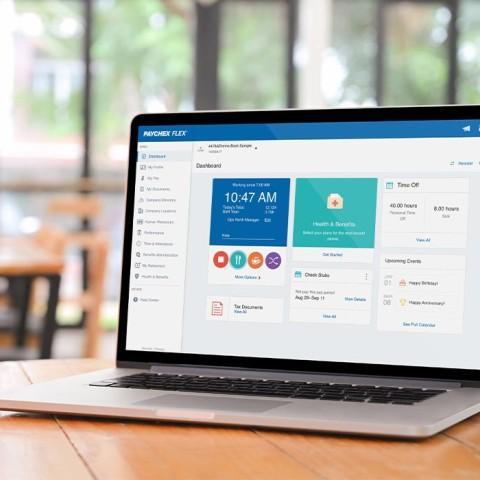- Payroll
- Article
- 6 min. Read
- Last Updated: 04/25/2024
Exempt vs. Nonexempt Employees: What Are the Differences?

Table of Contents
One topic that can generate ongoing confusion for business owners is employee classification: what is an exempt employee, and what is a nonexempt employee? Taking the time to review employee job duties and pay structure is essential. Failure to comply with the Fair Labor Standards Act (FLSA) and applicable state and local regulations related to employee classification may result in substantial costs to employers.
"As an HR consultant, I usually work on employee classification with new clients. The reason is actually very simple. The biggest misconception many employers have regarding exempt vs. nonexempt is that the method of compensation alone determines this classification," says Robert Sanders, Paychex client HR business partner.
What Is a Nonexempt Employee?
Under the FLSA, a nonexempt employee is entitled to receive at least the minimum wage and overtime pay. Although nonexempt employees are frequently paid on an hourly basis, they may sometimes be paid a salary. As an employer, you should understand what the FLSA is and the regulations that enforce it require when an employee is nonexempt.
Why is this classification so important? The FLSA requires employers to pay all nonexempt employees at least the federal minimum wage for hours worked, plus overtime pay at one and one-half times the regular pay rate for hours worked over 40 during a workweek. Employers with nonexempt employees must also be mindful of any requirements imposed by state and local law.
What Does Nonexempt Mean?
For the purposes of employee classification, nonexempt means those employees that are not exempt from the FLSA rules on wages and paid overtime. This may differ from other meanings of exempt and nonexempt, such as for tax withholding purposes. For example, the IRS considers certain charitable organizations or types of income as exempt from tax regulations.
What Is an Example of a Nonexempt Employee?
Nonexempt employees are generally paid on an hourly basis and often hold jobs where the main duties center around repetitive or routine tasks. Some examples of nonexempt positions may include:
- Electricians, carpenters, and construction or maintenance workers in non-management positions
- Cashier employees in a retail environment
- Clerical or secretarial employees with little autonomous decision-making, such as receptionists, accounting clerks, bookkeepers, and personnel clerks
- General inspectors or quality assurance workers following preset guidelines that need no specialized skills or knowledge to interpret
- Licensed practical nurses (LPNs)
What Is an Exempt Employee?
When it comes to the FLSA, what does exempt mean? An employee properly classified as exempt is not covered by the FLSA provisions on minimum wage and overtime pay. Typically, they are paid on a salary basis in return for professional services.
The FLSA permits an exemption from minimum wage and overtime pay for employees who meet three tests: a salary level test, a salary basis test, and a job duties test. Generally, to be exempt from FLSA provisions, an employee must earn a minimum base salary as provided in the regulations and be paid, on a salary basis, the same amount each week, regardless of quantity or quality of work.
Employees must also meet one or more of the DOL's job duties test to be classified as exempt from the overtime and minimum wage provisions of the FLSA. Exempt employees tend to work in roles that require little direct supervision and require special skill or knowledge. They may supervise other employees. Exempt employees also typically have the authority to make suggestions or recommendations about their work, although a higher level of management might make a final decision. Keep in mind that some jurisdictions have additional rules regarding who qualifies as exempt vs. nonexempt (for instance, with regards to salary thresholds).
What Is an Example of an Exempt Employee?
Exempt positions generally require the routine exercise of discretion and independent judgment and meet the other duties standards for the exemption categories as defined by the DOL. Applying the duties test may help you to determine which positions will typically be filled by exempt employees in your organization. Examples may include the following:
- Business executives
- Accountants, compliance, and marketing professionals
- Managers who supervise 2 or more full-time employees or the part-time equivalent
- Executive assistants who are given authority to make significant decisions on behalf of business owners or senior executives
- Doctors
- Lawyers
- Teachers
The following professions may also be considered exempt, depending on compensation and job duties:
- Outside salespeople
- Certain computer employees
- Registered nurses may be classified as exempt in some states
What Is the Difference Between Exempt and Nonexempt Employees?
The differences between exempt and nonexempt employees include their primary duties, how they are paid, and possibly how much they are paid. To ensure proper classification, employers should fully understand what skills are required to perform a job and ensure that each employee is paid in accordance with the FLSA and applicable state laws.
| Exempt | Nonexempt |
|---|---|
| Paid no less than $684 per workweek on a salary or fee basis through June 30, 2024. As of July 1, the per workweek salary is $844 and as of Jan. 1, 2025, it is $1,128 | Paid at least minimum wage for all hours worked & overtime pay for hours worked over 40 per workweek |
| Primary job duties require the use of advanced knowledge or skills | Primary job duties do not require an advanced degree or advanced knowledge |
| Have little direct supervision | May be directly supervised |
| Has authority/ability to make recommendations, though may not provide the final approval | Employees working in positions where job tasks are routine |
Exempt vs. Nonexempt Compensation
One of the chief differences between exempt vs. nonexempt workers is how they are compensated. Exempt employees are generally not subject to the FLSA regulations governing minimum wage and overtime pay. Rather, exempt employees are paid on a salary or fee basis, meaning they typically must receive their predetermined salary each workweek regardless of the quality or quantity of work performed. Subject to limited exceptions (e.g., the first and last week of work, unpaid FMLA leave, etc.), an exempt employee must receive their full salary for any week they perform any work regardless of the number of hours or days worked.
Alternatively, nonexempt employees may be paid on an hourly, piece, salary, commission, or other basis provided the employee is paid at least the federal minimum wage for each hour worked and for overtime at a rate not less than time and one-half the employee's regular pay rate.
Relevant Wage and Hour Laws
Employers should keep up to date with applicable federal, state, or local wage and hour laws. The Fair Labor Standards Act (FLSA) establishes standards for employee classification, compensation (including minimum wage and overtime pay), and recordkeeping for employers covered by this legislation.
Currently, the federal minimum wage rate equals $7.25 per hour. Employees covered by the FLSA must also receive overtime pay at time-and-one-half their regular rate when working more than 40 hours a week. However, it's important to note that many states have their own wage and hour laws that employers must follow.
Exempt vs. Nonexempt Job Duties
Relying on job titles is not a proper method of determining exempt status. An employee may have a title that suggests their position is exempt; however, that does not necessarily mean the employee is automatically eligible for an exempt classification. Rather, a salary level, salary basis, and primary duties analysis should be performed. An employee's classification as exempt or nonexempt may also affect how their compensable time is measured for job-related activities such as travel, being on-call, or work-related training.
"FLSA status is driven by what you do in terms of job function, not how you are compensated," Sanders explains. "Although it is the case that many times nonexempt employees are paid on an hourly basis and exempt employees are paid a salary, it's not always the case ... The key is understanding that status is not determined only by the method of compensation."
Consequences of Exempt vs. Nonexempt Misclassification
Incorrectly classifying an employee can result in fines and penalties, which may include payment for back wages. Make sure you adhere to the following best practices to avoid the expensive consequences of employee misclassification:
- Review and understand the rules and regulations outlined by the FLSA regarding exempt vs. nonexempt classifications.
- Next, turn your attention to your state, as several states have their own regulations around this subject.
- Consistently review, update, and use job descriptions to ensure employees performing similar duties are classified consistently. "The key functions and responsibilities of a given employee will dictate whether that position can qualify for one of the exemptions that would allow an employer to exempt the employee from overtime under the FLSA," Sanders says.
- Don't leave best practices to chance. Avoid missing key actions by having a process in place for correctly classifying your employees.
Classifying employees correctly and adhering to the applicable federal, state, and local laws and regulations can pose challenges for employees. To avoid common mistakes resulting in misclassification, business owners should ensure they have put the right process in place. Doing the extra work upfront may help you remain compliant and avoid time-consuming and costly penalties.
Exempt vs. Nonexempt Employee FAQs
-
What Is the Minimum Salary for Exempt Employees?
What Is the Minimum Salary for Exempt Employees?
The U.S. DOL has set a $684 minimum weekly salary for exempt employees. Note that this amount could change in the future under a proposed rule that would increase the salary thresholds for the FLSA’s “white-collar” and highly compensated employee exemptions. Individual states may have different thresholds.
-
What Are Exempt Employees Covered by White Collar Exemptions?
What Are Exempt Employees Covered by White Collar Exemptions?
Generally, employees who are exempt under one of the FLSA’s “white-collar” exemptions fit into one of the following categories:
- Administrative: Employees performing office or other non-manual work with primary work responsibilities related to the administration of management or general business operations of the employer or employer's customers. Employees' primary duties involve the exercise of discretion and independent judgment to make decisions of significance.
- Executive: Employees with the primary duty of managing a company or one of its departments or divisions. They must also regularly direct the work of and have the authority to hire and fire or recommend such action for 2 or more full-time employees or their equivalent (e.g., 2 part-time employees working 20 hours each equals one full-time employee).
- Learned professionals: Employees with primary duties that require advanced knowledge in a field of science or learning typically evidenced by the appropriate academic degree. Some examples are doctors, registered nurses, executive chefs, and teachers.
- Creative professionals: Employees with primary duties involving invention, imagination, creativity, or talent in a recognized area for creative endeavors such as music, journalism, or writing.
- Outside sales: Employees working customarily and regularly away from the company location with a primary focus on making sales, as defined by the FLSA.
- Computer: Skilled workers in the computer field, such as programmers or engineers with responsibilities to design or analyze systems, may be compensated on a salary basis of at least $684 per week or an hourly wage not less than $27.63 per hour.
- Highly compensated: As of 2023, employees making at least $107,432 annually, including at least $684 per week on a salary or fee basis, who regularly perform at least one of the stipulated duties of an exempt professional, administrative, or executive employee. As mentioned previously, this salary threshold could increase in the future under a rule proposed by the DOL.
-
Can Nonexempt Employees Be Salaried?
Can Nonexempt Employees Be Salaried?
Although nonexempt employees are generally paid per hour, they may sometimes be paid on a salary, commission, or piece rate basis. However, regardless of the basis of pay, all nonexempt employees must receive the FLSA-mandated overtime pay for hours worked over 40 in a workweek. Thus, a salaried nonexempt employee's hours must still be tracked each workweek to determine when they are eligible for overtime pay.
-
Can a Part-Time Employee Be Exempt?
Can a Part-Time Employee Be Exempt?
An employee's part-time status does not affect their classification, according to the FLSA. The salary threshold for exempt status applies regardless of an employee’s status as full-time or part-time.
-
What Makes an Employee Exempt vs. Nonexempt?
What Makes an Employee Exempt vs. Nonexempt?
Classification of an employee is generally determined by considering how much an employee is paid, how an employee is paid, and the individual's primary job duties. Exempt employees often require advanced knowledge or special skills to perform their primary duties, while nonexempt employees are focused on more routine work.
-
How Do You Determine Whether an Employee Should Be Exempt vs. Nonexempt?
How Do You Determine Whether an Employee Should Be Exempt vs. Nonexempt?
Employers should thoroughly understand the FLSA requirements for employee classification. To be classified as exempt, employees must be paid on a salary basis at or above the required salary threshold, regardless of hours worked each workweek, and carry out job duties that fall into one of the DOL's exempt categories. Additionally, the employee would have to satisfy any state-specific requirements for exemption.
-
Are Independent Contractors Exempt or Nonexempt?
Are Independent Contractors Exempt or Nonexempt?
Independent contractors are not considered employees and do not fall under the FLSA guidance on this topic. However, you should be aware of the tax laws and other regulations affecting independent contractors in your workplace.
-
How Could a Business Closure Impact Exempt and Nonexempt Employees?
How Could a Business Closure Impact Exempt and Nonexempt Employees?
Suppose your business is temporarily closed due to a natural disaster or public health crisis, and you have nonexempt employees (those who are entitled to minimum wage and overtime pay). In that case, you typically aren't obligated to pay them if they have not performed work. Employers must compensate nonexempt employees working remotely, and those employees should accurately record all time worked, including overtime.
Exempt employees typically must receive their full salary for any workweek in which they perform work, regardless of the total number of hours on the job. If your company closes, you must generally pay an exempt employee their full salary if they worked any part of the workweek.
-
Does Exempt Always Mean Salary?
Does Exempt Always Mean Salary?
Are salaried employees exempt in every case? In a short answer, no. Some positions may be classified as exempt even when the individual is paid hourly.
-
What Is the Difference Between Exempt and Nonexempt for Taxes?
What Is the Difference Between Exempt and Nonexempt for Taxes?
For tax purposes, some organizations, transactions, or types of income may not be subject to tax and therefore are considered tax-exempt. For example, the IRS may grant nonprofit or charitable organizations tax-exempt status. This definition of exempt vs. nonexempt differs from the FLSA exempt meaning, which focuses on an employee's classification.
Ensure You're Classifying Your Employees Correctly
Get the right solutions for your business. Paychex Flex® offers customized payroll packages made to fit your business needs.


Tags








